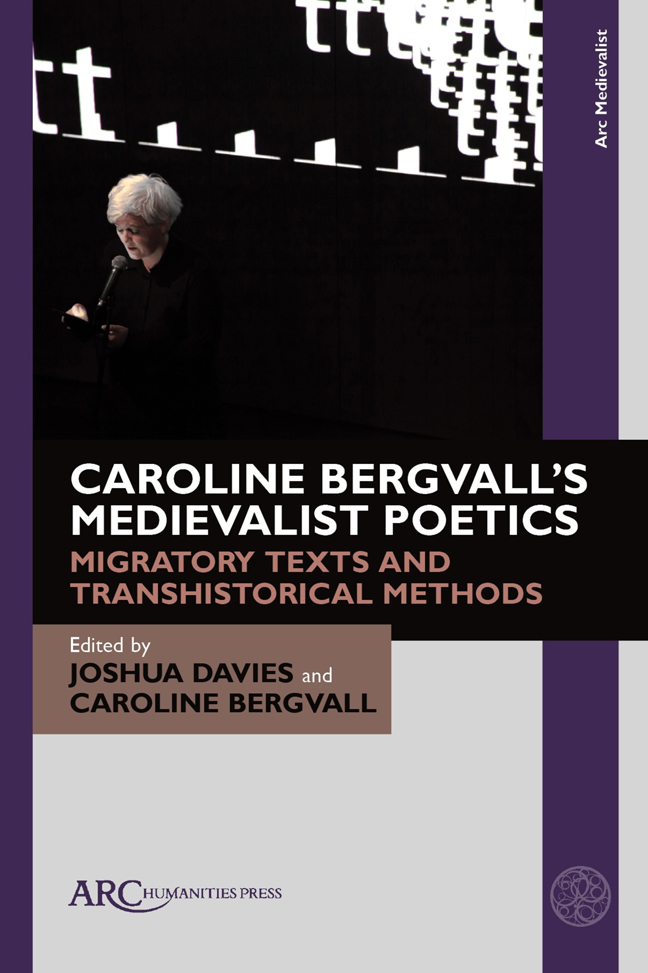Chapter 4 - Inventive Reworkings: Transformation and Translation in Caroline Bergvall’s Meddle English
Published online by Cambridge University Press: 20 February 2024
Summary
I HAVE ALWAYS felt uncomfortable with the notion of “translations” of Chaucer, indeed of any translations from Middle English into Modern English. Chief suspect is Neville Coghill’s Penguin edition of Chaucer’s The Canterbury Tales—which at least is in verse—but I am not purist enough to regard the use of this book as heresy. After all, I suspect this widely available text forms a gateway for many general readers (and a godsend for the confused student), that hopefully leads onto the delights of reading Chaucer’s Tales as they are, which is in itself an adventure in forms and meanings (and in their interactions). There remains the irritating feeling that the poems are already in English, and need no translation.
Roman Jakobson, in his 1959 essay “On Linguistic Aspects of Translation,” defines three types of translation (only two of which I shall refer to). It is possible to conceive that such “translations” of Chaucer proceed as if they were “the more familiar form, rep-resenting translations across languages” as Sophie Collins puts it, glossing Jakobson’s definition of “interlingual” translation: “an interpretation of verbal signs by means of some other language.” It is perhaps more appropriate to think of such works via Jako-bson’s second category of “intralingual” translation which, Collins reminds us, “is also called ‘rewording’ by Jakobson, and defined as ‘an interpretation of verbal signs by means of other signs in the same language.’” Collins is here introducing her innovative antho logy Currently & Emotion: Translations, which contains a plethora of translational and transformational works, and includes the work of Caroline Bergvall, indeed excerpts from her “Shorter Chaucer Tales,” from her 2011 publication, Meddle English, which I shall be examining here. Intralingual translation might be a better way of conceiving of works such as Coghill’s, and this partly applies to the work of Bergvall as well but she, characteristically, exceeds such categories. This might be seen as the central motivation of her work; Collins wisely warns us that “Bergvall is careful to define herself not as a translator per se, but rather as someone who works more obliquely with translation and translation theory by investigating source texts and languages.”
A formalist reading of translation as a practice moves effortlessly towards notions of transformation which, we shall see, is a central event in Bergvall’s work.
- Type
- Chapter
- Information
- Caroline Bergvall's Medievalist PoeticsMigratory Texts and Transhistorical Methods, pp. 35 - 44Publisher: Amsterdam University PressPrint publication year: 2023



